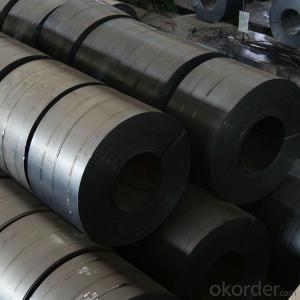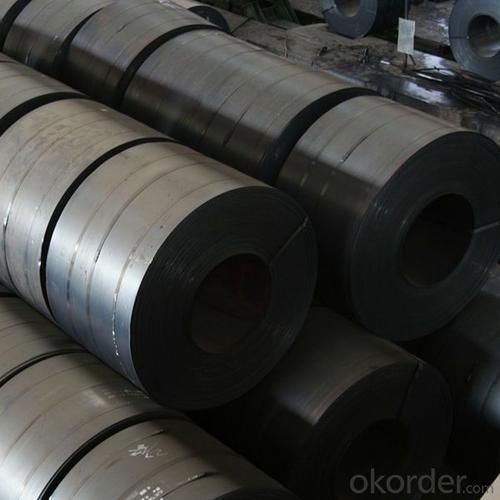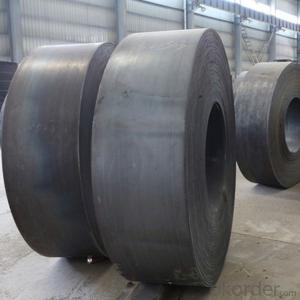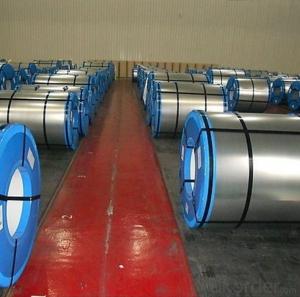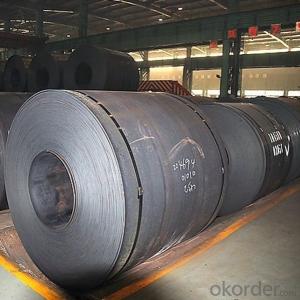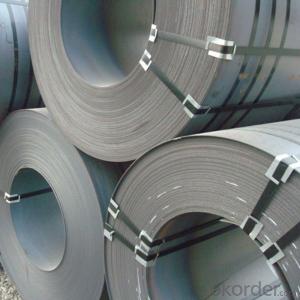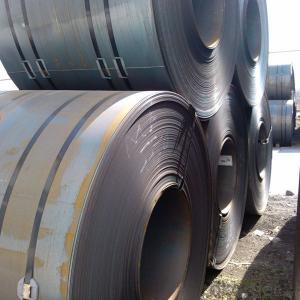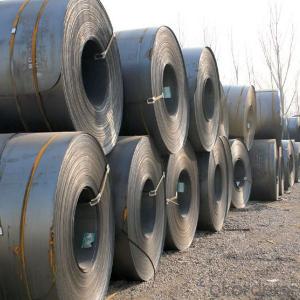Hot Rolled Steel Plates SS400 from China
- Loading Port:
- China main port
- Payment Terms:
- TT OR LC
- Min Order Qty:
- 25 m.t.
- Supply Capability:
- 10000000 m.t./month
OKorder Service Pledge
OKorder Financial Service
You Might Also Like
Specification
DESCRIPTION FOR CARBON STEEL PLATE
Production | hot rolled steel coils ss400 |
Port | Tianjin, China |
Category | Minerals & metallurgy |
Thickness | 1.8-16mm |
Width | 1000-1500mm |
Coil Weight | about 23 tons |
Material Grade | SS400\Q235\Q345B |
Technique | Hot Rolled |
Standard | GB ,JIS |
Test | With Hydraulic Testing, Eddy Current , Infrared Test |
Surface | 1) Bared 2) Black Painted (varnish coating) 3) Galvanized 4) Oiled |
Package | in bundles, strapped by strips. Or as customer’s requirement |
Sample | Common products, we can provide freely, for special production,we can depends on negotiation. |
MOQ | 50 tons |
Payment | 100% L/C at sight, 30% T/T in advance, and the balance against the copy of B/L or negotiation |
Delivery time | Within 10-25 days, according to quantity, asap save customer’s time |
Certificate | ISO |
TRADE TERMS :FOB, CFR, CIF
PACKING:
1.Big thickness:by bulk vessel
2.Small thickness:packed by steel strips and shipped by container
3.According to the requirements of customers'
PICTURES:
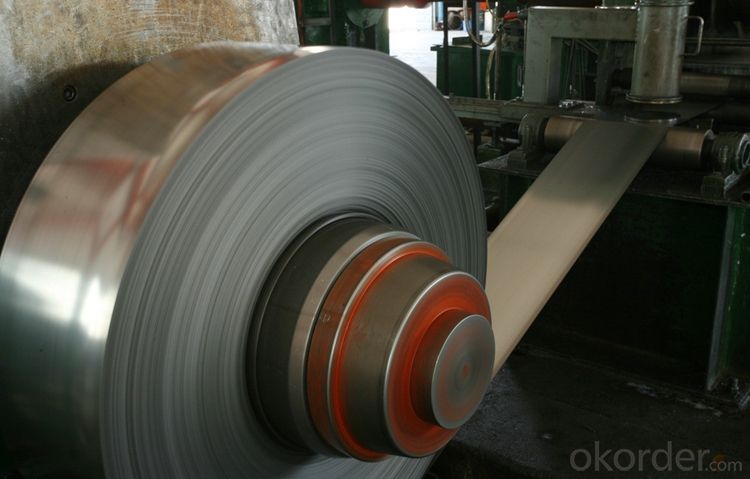
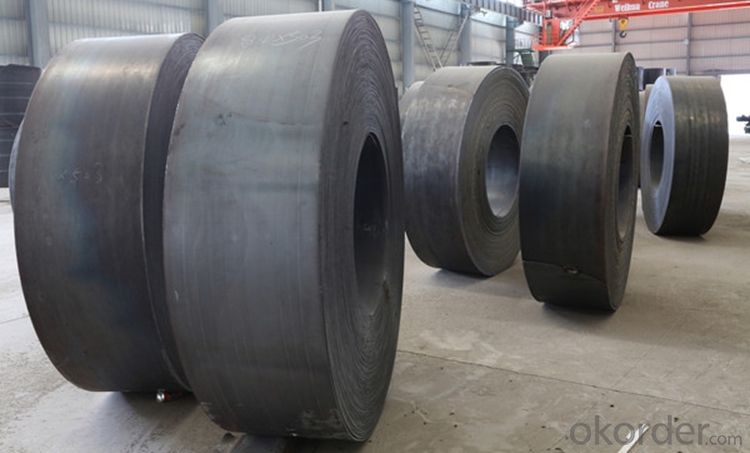
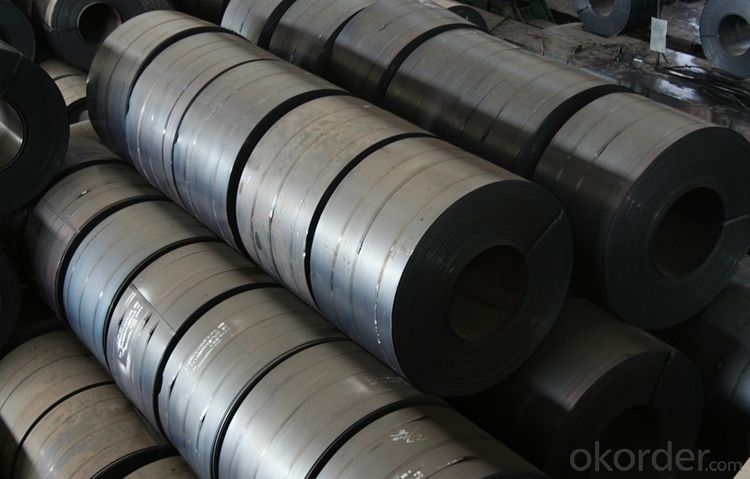
FAQ
Q:How to order?
A: Please send us your purchase order by email or fax .or you can ask us to send you a proforma invoice for your order .We need to know the following information for your order.
1) Shipping information-company name, street address, phone number, fax number, destination sea port
2) Product information – Quantity, Specification (steel type, thickness, width, surface finish)
3) Delivery time required
4) Forwarder's contact details if there's any in China
- Q: What are they worth today? As well as a 1943 steel nickel?
- The article I am inclosing quotes the price at 50 cents, apparently the 1943 copper penny is worth thousands of dollars.
- Q: How are steel coils used in the production of food processing machinery?
- Steel coils are used in the production of food processing machinery as they serve as a key component for constructing the machine's framework and structure. The coils provide durability, strength, and resistance to the machinery, ensuring its reliability and longevity in food processing operations.
- Q: What are the different methods of uncoiling steel coils?
- Uncoiling steel coils can be done in several ways, depending on the specific requirements and available equipment. Some commonly used methods are: 1. Manual uncoiling: This method involves manually unwinding the coil using a bar or rod inserted through the inner diameter. It is suitable for smaller coils or when other methods are not accessible. 2. Mandrel uncoiling: A mandrel, a cylindrical tool, supports the inner diameter of the coil and enables free rotation. The coil is placed on the mandrel and rotated to unwind the steel. 3. Decoiler machine uncoiling: Designed specifically for uncoiling steel coils, these machines consist of a mandrel or drum to hold the coil. They also include a motorized mechanism to control the speed of unwinding. Decoilers are suitable for larger and heavier coils, making them ideal for industrial applications. 4. Straightener-feeder uncoiling: This method is utilized when the steel coil needs to be straightened and fed into a production line simultaneously. The coil passes through straightening rollers to remove any curvature before being fed into the subsequent processing equipment. 5. Recoiler uncoiling: Recoilers are used when the steel coil needs to be rewound into a new coil. The original coil is uncoiled using one of the previously mentioned methods, and then the steel is rewound onto a new mandrel or drum to create a smaller coil. It is important to consider factors such as the size and weight of the coil, desired level of automation, and specific production requirements when choosing an uncoiling method.
- Q: i was thinking like getting a a steel building for 2 or 3 stall does anyone know how much that would cost? Have anyone used steel building how do you like them etc
- I have two steel barns, one is 4 stables. 15 x12 for 3 stables and the other 12 x 18 I have a large tackroom and an area for storing gardening and farm light machinery. (Chain saws. strimmers and fencing stuff.) The second barn has 4 stables 12 x 15. an 8' aisle and then two large loose shed areas. 30' x 50'. I can run these as one pen if I want. I have 45' x 70' at the other end for storing hay and straw. Haven't a clue to the cost but it wasn't cheap! Although it is all steel the lower walls of the stables are all blocks. I didn't want to line the steel with wood as they eat it for fun. The loose shed are lined with hard board.
- Q: I made a wood crossbow body but all I need is a bow which I want to be metal. I've used a thin steel sheet that I cut to appropriate size but when it bent with the string strung, it never went to original shape after being shot. I used a slightly thicker and it wouldn't bend at all. Anybody know what thickness and type to use? Any real answers are very appreciated. Thanks.
- You are trying to use plain carbon steel which only can be bent a little bit if it is to return to its original shape. You have to use spring steel or high carbon steel that is intended to be bent a lot and still recover to its original shape. Most people making crossbows with metal bows get a piece of steel from a leaf spring of a vehicle and grind it to shape. A steel bow cross bow almost always needs a very strong trigger mechanism and a miniature wench to pull the steel bow string into position. You might be better off making the bow of wood.
- Q: What are the common coil thicknesses available for steel coils?
- The common coil thicknesses available for steel coils can vary depending on the specific application and industry requirements. However, some of the most common coil thicknesses for steel coils range from 0.5mm to 3mm. These thicknesses are commonly used in various manufacturing processes, including automotive, construction, and appliance industries. For lightweight applications or where flexibility is required, thinner steel coils with thicknesses ranging from 0.5mm to 1.5mm are often used. These thinner coils are suitable for applications such as automotive body panels, roofing, and general sheet metal fabrication. On the other hand, for applications that require higher strength and durability, thicker steel coils with thicknesses ranging from 1.5mm to 3mm are commonly used. These thicker coils are often utilized in heavy-duty construction, structural components, and industrial equipment manufacturing. It is important to note that these are just general ranges, and specific coil thicknesses can vary depending on the specific requirements of a particular project or customer preference. Steel coil thicknesses can be customized to meet specific needs, allowing for greater flexibility in various industries.
- Q: What are the different grades of steel coils?
- There are various grades of steel coils available, including low carbon steel, medium carbon steel, high carbon steel, stainless steel, and galvanized steel coils. Each grade has specific properties and applications, making them suitable for different industries and purposes.
- Q: I found the cold steel kukri machete online and I am very impressed and am thinking of ordering it. A friend of mine said that the cold steel kukri machete is nothing compared to the KaBar Kukri Machete. I was wondering if other people who own these machetes could tell me the good and the bad of each machete. Such as what they have been able to cut. If they break easily and such. Thanks in advance.
- cold steel will be thin but made of a carbon steel good enough but not perfect flexable and as for cutting power that varies piece to piece as not all places sell sharpened models so be prepared to hand sharpen in any case you would need to hand sharpen sooner or later so a sharpening stone is a good investment no matter what machete you buycold steel is fine for most peoples need for them unless you see a better price go with either one
- Q: How are steel coils used in the manufacturing of construction reinforcement bars?
- Steel coils are used in the manufacturing of construction reinforcement bars by being processed through a series of steps. The coils are first uncoiled and then straightened before being cut to the desired length. These cut lengths are then shaped and bent into the required reinforcement bar shape using specialized machinery. Finally, the bars are heat-treated and cooled to enhance their strength and durability. Overall, steel coils serve as the primary raw material for the production of construction reinforcement bars, providing the necessary strength and structural integrity to concrete structures.
- Q: I have heard of Cold Rolled steel, Castle Forged steel and Valerian steel and i was just wondering the difference between them.I know Valerian steel is by far the strongest and durable but what about the other two types? Do you know because i haven't read all the books yet.
- Castle Forged Steel
Send your message to us
Hot Rolled Steel Plates SS400 from China
- Loading Port:
- China main port
- Payment Terms:
- TT OR LC
- Min Order Qty:
- 25 m.t.
- Supply Capability:
- 10000000 m.t./month
OKorder Service Pledge
OKorder Financial Service
Similar products
Hot products
Hot Searches
Related keywords
